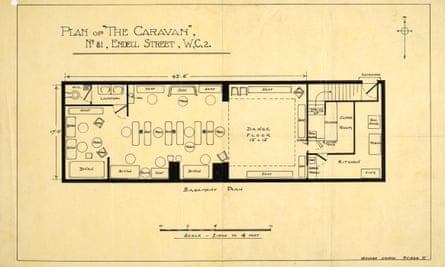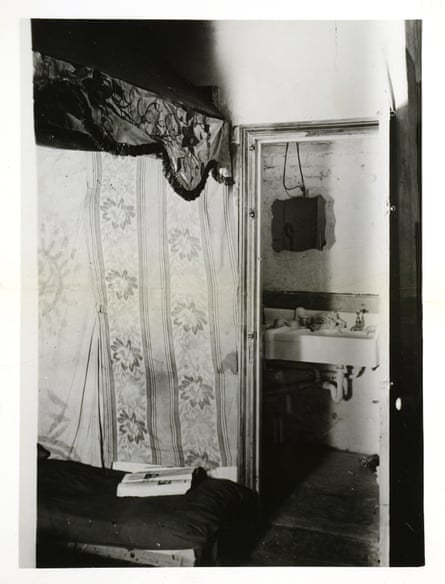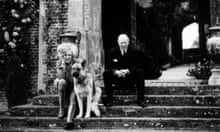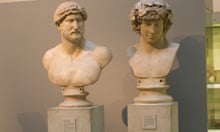To some, the Caravan Club was a fun place offering friendship and “all-night gaiety”; to others it was “absolutely a sink of iniquity … only frequented by sexual perverts, lesbians and sodomites”.
For the police, it was a place so dangerous that it required regular surveillance and a raid, which resulted in more than 100 arrests.
Now, more than 80 years after its enforced closure, the National Trust and the National Archives have collaborated to recreate the Caravan Club, a lesbian and gay friendly members’ club that billed itself as “London’s greatest bohemian rendezvous said to be the most unconventional place in town”.
Joseph Watson, creative director of the National Trust London, said the project would help provide “a timely reminder of the importance of sidelined cultures to our national heritage”.
The Caravan Club was one of many mostly temporary venues at a time when being openly gay was perilous, often resulting in prosecution and imprisonment.

“My sense with this club is that they knew right from the start that it would close down within a matter of months,” said Watson.
“They came into this space, a dingy basement, and just hung material and brought in whatever furniture they could find and set up to the best of their abilities. They knew it would come to an end very quickly.
“There is something very poignant and potent about this particular place and the idea of the caravan and the sense of being moved on.”
The club, in a basement in Endell Street near Covent Garden, was run by Billy Reynolds and a former strongman and escapologist called Jack Neave, known as “Iron Foot Jack” because of the metal platform he wore to compensate for a shortened leg.
Records in the National Archives reveal the Metropolitan police had it under surveillance from October 1933 after a series of complaints. Police appear to have been stationed in the Shaftesbury Theatre opposite, watching the comings and goings from unused offices.
It was not until August 1934 that the raid came, with plainclothes officers easily entering by pretending to be visitors.

The officer in charge of the raid, Insp Clarence, noted in his report: “The room inside was very badly lighted and the atmosphere was awful.”
Worse than that was the small dance floor. “Men were dancing with men and women were dancing with women, a number of couples were simply standing still, and I saw couples wriggling their posteriors, and where I saw men together they had their hands on the other’s buttocks and were pressing themselves together.
“In fact all the couples I saw were acting in a very obscene manner.”
A total of 103 men and women were arrested and taken to the nearby Bow Street police station. Many of the young men there were working class – labourers, shop assistants, waiters – and the majority were found not guilty in court on condition they never frequented such a club again.
There was, however, no leniency for Reynolds and Neave, respectively given sentences of 12 months and 20 months hard labour in prison.

The recreated club, with photographs, police records and letters on display, is in what is now the Freud cafe-bar – not the exact spot but very close. It is one of a number of events being held across the UK to mark the 50th anniversary of the Sexual Offences Act, the landmark moment which decriminalised private homosexual acts between men over 21 in England and Wales.
It will be the endpoint of walking tours of Soho featuring long-gone venues, such as Billie’s Club on Little Denmark Street and the Shim Sham Club, now an O’Neill’s but in the 1930s a gay friendly jazz venue even more shocking because it was frequented by black men “dancing with white women”.
The Queer City project is part of a wider programme trying to change the perception of the National Trust specifically and heritage more widely. It is also part of the trust’s year-long Prejudice and Pride programme unearthing often-secret gay histories from its properties.


